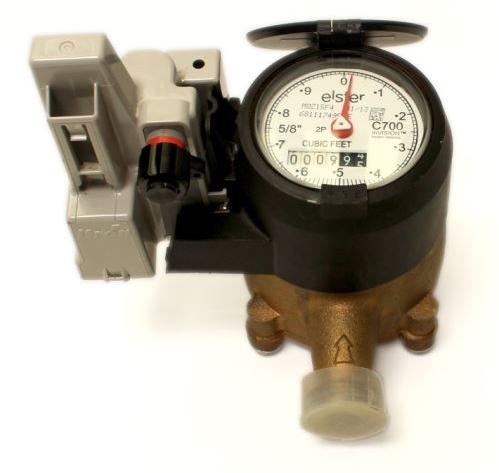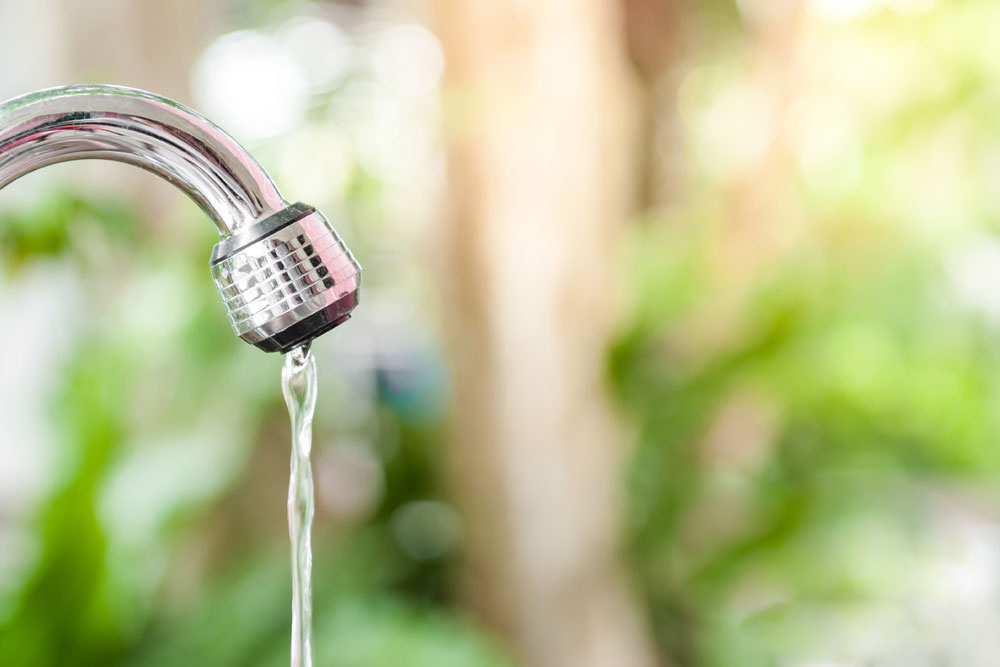My Detailed Guide to Dealing with Low Water Pressure in Your Home
My Detailed Guide to Dealing with Low Water Pressure in Your Home
Blog Article
They are making several good annotation relating to 9 Reasons for Low Water Pressure in Your House in general in the content which follows.

Low water stress in your house can be an aggravating issue, influencing everything from showering to cleaning recipes. If you're experiencing weak water flow, there are numerous possible reasons and solutions to explore. In this guide, we'll review typical reasons for low water stress and practical actions to address the problem properly.
Intro to Low Tide Stress
Low tide stress takes place when the circulation of water from your faucets, showers, and other components is weaker than typical. This can make daily tasks a lot more difficult and much less efficient. Understanding the sources of low tide pressure is crucial to discovering the best solution.
Usual Causes of Low Water Pressure
Pipeline Obstructions
With time, pipes can end up being clogged with mineral deposits, debris, or particles, limiting the circulation of water. This is a common concern in older homes with galvanized steel pipes.
Rust
Rust within pipes can lead to leakages and lowered water stress. Rust accumulation can restrict water circulation, especially in aging plumbing systems.
Faulty Pressure Regulatory Authorities
Pressure regulators are responsible for preserving regular water pressure in your house. If they malfunction, it can lead to low tide stress or unequal circulation throughout your home.
Metropolitan Supply Of Water Issues
In some cases, the trouble lies outside your home. Metropolitan water problems, such as main line leakages or upkeep job, can temporarily lower water pressure in your area.
Exactly How to Diagnose Low Water Pressure
Checking Taps and Fixtures
Begin by checking the water pressure at different taps and components throughout your home. If the problem is separated to details areas, it may suggest local troubles.
Examining Pipes
Evaluate noticeable pipes for signs of leaks, rust, or blockages. Pay attention to any kind of uncommon audios, such as banging or rattling pipelines, which could show issues within the plumbing system.
Consulting with a Plumber
If you're not able to identify the root cause of low water stress, think about hiring an expert plumber to carry out a comprehensive evaluation. They can determine underlying issues and suggest ideal solutions.
DIY Solutions to Repair Low Water Stress
Cleaning Aerators and Showerheads
Mineral deposits can gather in aerators and showerheads, decreasing water flow. Get rid of and clean up these parts routinely to improve water pressure.
Flushing Hot Water Heater
Debris buildup in the water heater can limit circulation and reduce effectiveness. Purging the tank occasionally assists eliminate sediment and maintain optimum performance.
Checking Pressure Regulatory Authority
Ensure that the pressure regulator is functioning correctly. Changing or replacing the regulator can help restore correct water pressure throughout your home.
Cleaning Clogs in Pipeline
For small blockages, attempt making use of a plumbing serpent or chemical drain cleaner to clear obstructions in pipes. Be cautious when utilizing chemicals and adhere to safety and security guidelines.
When to Call an Expert Plumber
If do it yourself initiatives fall short to deal with the issue or if you presume considerable plumbing issues, it's ideal to look for assistance from a qualified plumber. They have the know-how and devices to address complex issues securely and efficiently.
Safety Nets to Preserve Water Stress
Routine Maintenance
Set up routine upkeep for your plumbing system to avoid concerns such as rust, leaks, and obstructions. Resolving minor problems early can aid stay clear of more significant repair services later on.
Setting Up a Pressure Booster
Take into consideration setting up a stress booster pump to enhance water stress in locations with constantly low circulation. This can be particularly advantageous for multi-story homes or residential or commercial properties with high-demand components.
Tracking Water Use
Be mindful of water use behaviors and stay clear of ill-using the plumbing system. Simple modifications, such as staggering showers and washing tons, can help keep appropriate water pressure.
Final thought
Dealing with low water stress can be frustrating, yet recognizing the underlying causes and applying appropriate options can recover optimal circulation throughout your home. Whether it's cleaning up aerators, inspecting pipes, or consulting with a plumber, taking positive steps can make sure a steady supply of water for your day-to-day needs.
HOW TO FIX LOW WATER PRESSURE IN YOUR HOUSE (EXPERT GUIDE)
The morning shower lacking any real pressure? Bathtub taking hours to fill? Or maybe you’re dissatisfied with the inadequate performance from your combi boiler?
Then you, like millions of others across the UK, might be experiencing low water pressure.
Fortunately, the good news is that you don’t have to continue living this way. The cause of low water pressure in the home is often quite simple, and you may not even require a plumber to fix the problem.
What causes low water pressure in the house?
If you are experiencing issues with water pressure throughout your home, then you may have one of the problems outlined below.
Most of these problems can be fixed quite easily, but for others, you may need to contact a plumber.
Obstructed Shutoff Valve
If you’ve just bought a new home or recently had building work conducted on your property, there is a chance that your water valves were not fully opened.
If the water valve is partially closed, then you may be restricting the amount of water entering your home. To fix this, simply ensure the valve is fully open.
If the valve appears fully open but you are still encountering reduced water pressure, then the valve may be broken. If this is the case, do not under any circumstances try to fix it without proper training.
Often found under your kitchen sink, a water valve will usually look like a bright yellow handle.
Again, if you believe the water valve is broken, contact a plumber immediately.
Leaks in Your Water Pipes
Leaks are the worst-case scenario when it comes to low water pressure.
If the water pipes are damaged, then this will cause low water pressure, as not all the water will make it to your taps.
After you’ve checked to see if the valve is fully open, you can conduct a leak check of your home. Now, this may seem scary, but it is actually quite simple.
Clogged Water Pipes
Clogged water pipes are one of the most common causes of low water pressure.
These clogs usually build-up when your home is supplied water via iron pipes. Iron is particularly vulnerable to rusting which can then break off and cause an obstruction within your system. You also face the problem of things like dirt, gravel or sand entering creating mineral deposits which further block water flowing from the mains water supply.
Unfortunately, if you suspect that clogged pipes may be restricting your water supply, then you will need to contact a plumber.
In this situation, you will either need to have your pipes removed and cleaned or in more severe cases, you could require a new set of water pipes.
Designer Taps
Designer taps look fantastic, but are they built to be efficient in your plumbing system? Modern taps are built for modern homes and they often have lower flow rates that are specifically designed for use within high-pressure systems.
Install a Water Pressure Booster Pump
If the issue is simply that the mains water pressure supply is too low, the simplest fix is to invest in a booster pump. Found in homes of all shapes and sizes, booster pumps are a relatively cheap option to add extra pressure to your home.
Designed to increase water pressure by passing water into the pump from your mains supply and then ejecting it into your home water system at a higher pressure, a booster pump is a truly simple and effective solution to increasing water pressure.
https://www.anchorpumps.com/blog/the-plumbers-guide-to-fixing-low-water-pressure/

HOW TO FIX LOW WATER PRESSURE IN YOUR HOUSE (EXPERT GUIDE)
The morning shower lacking any real pressure? Bathtub taking hours to fill? Or maybe you’re dissatisfied with the inadequate performance from your combi boiler?
Then you, like millions of others across the UK, might be experiencing low water pressure.
Fortunately, the good news is that you don’t have to continue living this way. The cause of low water pressure in the home is often quite simple, and you may not even require a plumber to fix the problem.
What causes low water pressure in the house?
If you are experiencing issues with water pressure throughout your home, then you may have one of the problems outlined below.
Most of these problems can be fixed quite easily, but for others, you may need to contact a plumber.
Obstructed Shutoff Valve
If you’ve just bought a new home or recently had building work conducted on your property, there is a chance that your water valves were not fully opened.
If the water valve is partially closed, then you may be restricting the amount of water entering your home. To fix this, simply ensure the valve is fully open.
If the valve appears fully open but you are still encountering reduced water pressure, then the valve may be broken. If this is the case, do not under any circumstances try to fix it without proper training.
Often found under your kitchen sink, a water valve will usually look like a bright yellow handle.
Again, if you believe the water valve is broken, contact a plumber immediately.
Leaks in Your Water Pipes
Leaks are the worst-case scenario when it comes to low water pressure.
If the water pipes are damaged, then this will cause low water pressure, as not all the water will make it to your taps.
After you’ve checked to see if the valve is fully open, you can conduct a leak check of your home. Now, this may seem scary, but it is actually quite simple.
Clogged Water Pipes
Clogged water pipes are one of the most common causes of low water pressure.
These clogs usually build-up when your home is supplied water via iron pipes. Iron is particularly vulnerable to rusting which can then break off and cause an obstruction within your system. You also face the problem of things like dirt, gravel or sand entering creating mineral deposits which further block water flowing from the mains water supply.
Unfortunately, if you suspect that clogged pipes may be restricting your water supply, then you will need to contact a plumber.
In this situation, you will either need to have your pipes removed and cleaned or in more severe cases, you could require a new set of water pipes.
Designer Taps
Designer taps look fantastic, but are they built to be efficient in your plumbing system? Modern taps are built for modern homes and they often have lower flow rates that are specifically designed for use within high-pressure systems.
Install a Water Pressure Booster Pump
If the issue is simply that the mains water pressure supply is too low, the simplest fix is to invest in a booster pump. Found in homes of all shapes and sizes, booster pumps are a relatively cheap option to add extra pressure to your home.
Designed to increase water pressure by passing water into the pump from your mains supply and then ejecting it into your home water system at a higher pressure, a booster pump is a truly simple and effective solution to increasing water pressure.
https://www.anchorpumps.com/blog/the-plumbers-guide-to-fixing-low-water-pressure/
We were shown that editorial on Dealing with Low Water Pressure in Your Home from someone on another web property. Sharing is nice. You never know, you might be doing someone a favor. Thank you for your time. Kindly come visit our website back soon.
Further Details Report this page